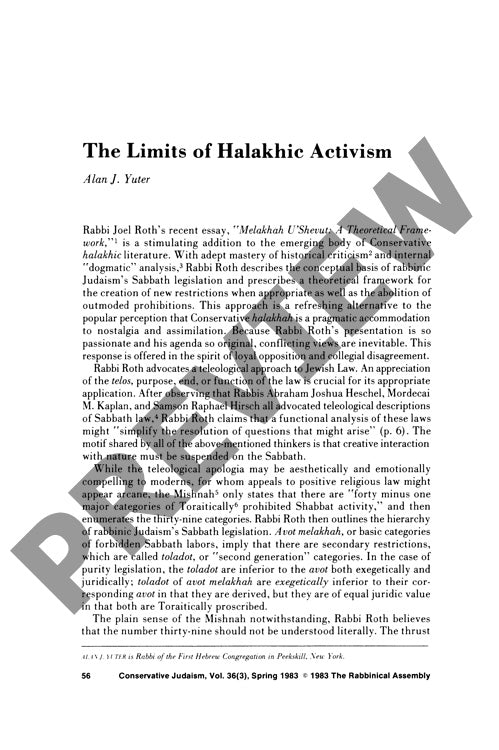The Limits of Halakhic Activism
Couldn't load pickup availability
Can modern rabbis create entirely new categories of forbidden Sabbath activities? Rabbi Joel Roth's controversial proposal for expanding Jewish law through functional principles rather than textual precedent challenges fundamental assumptions about halakhic authority. Through detailed analysis of Mishnaic, Talmudic, and medieval sources, including Maimonides and the Tosafists, significant gaps emerge between Roth's interpretative framework and the plain meaning of classical texts. While Roth advocates for a teleological approach that would allow contemporary authorities to establish new Biblical prohibitions (avot melakhot) and rabbinic restrictions (shevutim), the historical record shows early authorities explicitly rejected post-talmudic creation of such categories. The evidence suggests Roth's methodology, though intellectually compelling, substitutes subjective interpretation for established legal principles, risking arbitrary determinations that could undermine halakhic legitimacy. Conservative Judaism's future development may depend less on such judicial activism than on the organic evolution of community practice and custom, guided by philological precision and authentic textual engagement. This tension between legal dynamism and textual authority remains central to Conservative Judaism's ongoing negotiation of tradition and change.

More Information
-
Physical Description
-
Publication Information
Published 1983
ISBN
-
Publication Credits
Alan Yuter

